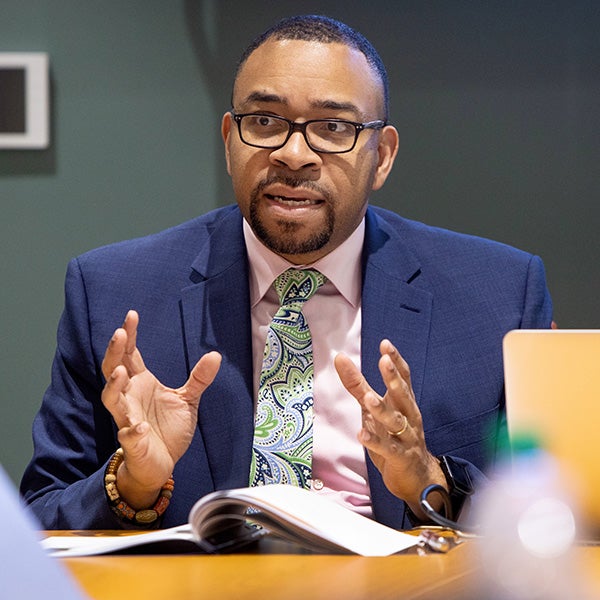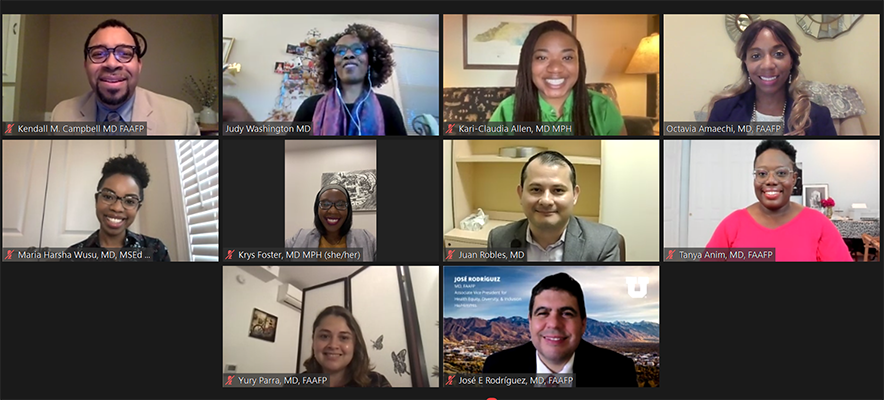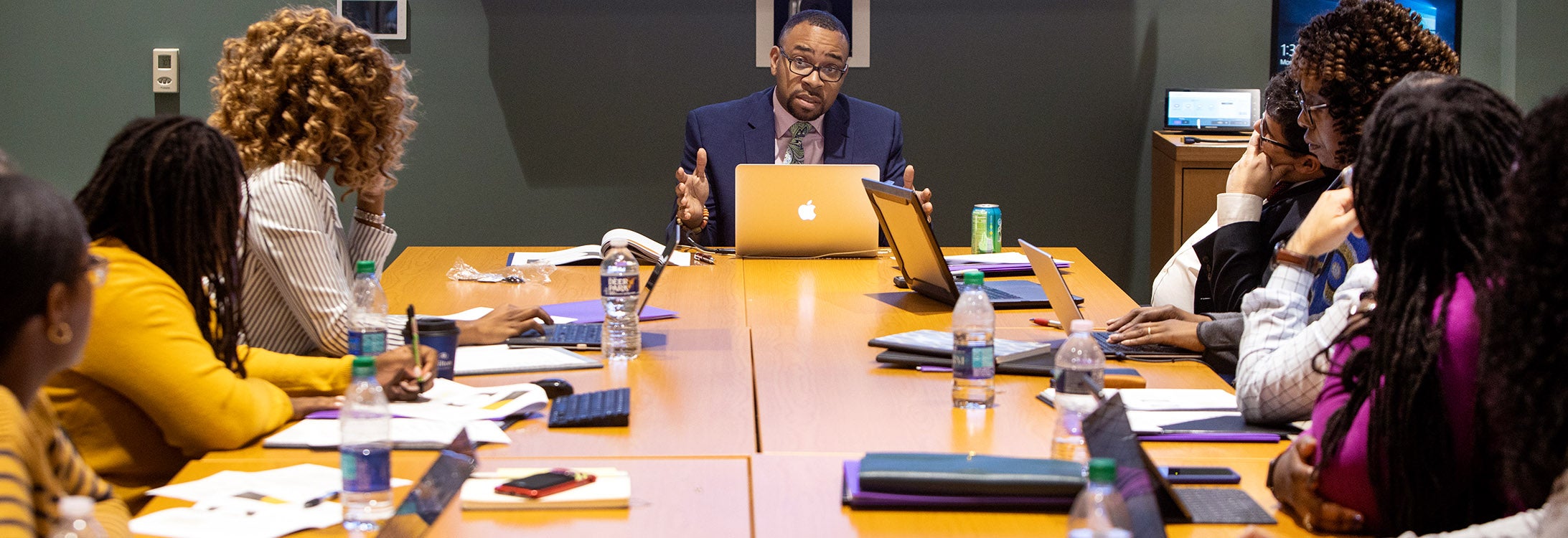GUIDING UNDERREPRESENTED FACULTY
Brody administrator earns accolades for mentoring faculty from underrepresented groups
Dr. Kendall Campbell, senior associate dean for academic affairs for the Brody School of Medicine at East Carolina University, has received the 2021 President’s Award from the Society of Teachers of Family Medicine (STFM). Campbell also serves as associate professor of family medicine and director of Brody’s Research Group for Underrepresented Minorities in Academic Medicine.
Founded in 1967, STFM is a national community of academic leaders committed to developing an accomplished family medicine workforce, prepared to serve as the foundation of America’s health care system. Members include physicians, physician assistants, nurse practitioners, behavioral health specialists, researchers, nurses and other health care professionals, health system executives, administrators, fellows, residents, students and others involved in the education of family physicians.

Campbell and two colleagues created the Leadership Through Scholarship Fellowship, which guides underrepresented in medicine faculty in succeeding in academic family medicine. (Photo by Rhett Butler)
Each year, the STFM president is given an opportunity to recognize individuals during the STFM Annual Spring Conference who have had a significant positive impact on family medicine.
STFM President Dr. Tricia Elliott elected to award the 2021 honor to Campbell and two of his colleagues for creating the Leadership Through Scholarship Fellowship. The program addresses a key barrier to leadership development by guiding underrepresented in medicine (URM) minority faculty on topics including publishing academic work, rising in the academic ranks and navigating academic family medicine.
“They’ve all acted on a vision,” Elliott said of the honorees during a May 5 awards program. “They’ve provided career development and mentorship in a personal and effective way. I am so pleased to honor your mission, your vision and your hard work.”
Campbell said the honor was humbling and that he hopes it brings focus onto the importance of mentorship among faculty.
“I hope this award brings to light the critical nature of the work of developing the curiosity and skills for scholarship for URM faculty,” Campbell said. “I hope to help equip these family medicine faculty with the tools to help them make meaningful scholarly contributions to academic medicine, helping define and address problems and grow their careers as leaders in the field.”
Elliott called the team’s efforts “a creative solution to the problem,” a sentiment echoed by Brody leaders.
“Dr. Campbell’s efforts with URM faculty across the country will have a profound impact on medicine, through Brody’s mission at work. He and his colleagues provide mentorship and guidance for faculty members in family medicine that help them publish their scholarly work and succeed in the academic world,” said Dr. Mark Stacy, dean of the Brody School of Medicine and vice chancellor for ECU’s Division of Health Sciences. “Because of Dr. Campbell’s work here at Brody and on a national level to lend this unique support, faculty from underrepresented groups are more likely to succeed and let their talents shine, to the benefit of medical students and fellow faculty.”
Campbell’s fellow honorees are Dr. José Rodríguez, associate vice president of health equity and inclusion and professor of family and preventive medicine at the University of Utah Health in Salt Lake City, Utah, and Dr. Judy Washington, associate director of Overlook Family Medicine Residency Program at Atlantic Health System in Summit, N.J.

The pilot of the Leadership Through Scholarship Fellowship began in 2019, and its participants gathered for a virtual graduation with program leaders. (Contributed photo)
Campbell, Rodríguez and Washington are all members of STFM’s Minority and Multicultural Health Collaborative, which aims to increase the number of underrepresented minority faculty in academic family medicine, including those with leadership positions.
“Given the primary care mission of Brody, I am excited to be part of a fellowship that helps prepare family medicine physicians for careers in academic medicine,” Campbell said. “I am excited that we will be able to bring fellows to Brody, as not only are we a leader in primary care, but we are a leader in diversity as well.”
The Leadership Through Scholarship Fellowship addresses trends in medicine that often impact underrepresented faculty, including disproportionate committee service and clinical responsibilities, that can affect career advancement.
Groups that the Association of American Medical Colleges considers underrepresented minorities in medicine are Black or African American, Hispanic or Latino and Native American. According to the AAMC, only 4% of full-time faculty are URM, which is far below these minorities’ representation in the general population.
A pilot of the fellowship launched in May 2019 and was funded by the STFM Foundation. Campbell, Rodriguez and Washington worked with seven junior URM faculty from a variety of medical schools who received personalized coaching and mentorship on how to produce, present and publish scholarly work. One of the events was held at Brody.
“It is compassion that makes the work of a family physician meaningful, but it is research and evidence-based practice that gives our work a standard of quality across the specialty,” said program participant Dr. Kari-Claudia Allen, assistant program director of the family medicine residency program for Palmetto Health-University of South Carolina School of Medicine. “This workshop gave junior faculty, who are already crafting a myriad of innovative and creative projects, a deep dive into how to translate that work into a body of evidence that will move our specialty forward.”
Campbell said the program goes beyond skills-based training—but “takes into account culture, background and the minority tax and its impact on the recruitment and retention of URM faculty in academic medicine.
“As a young faculty member, I paid, and continue to pay, the minority tax,” he added. “Teaching early career faculty to navigate these taxes is exciting and rewarding as when I see them, I see me so many years ago.”
